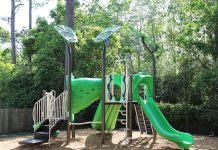Disciplina efectiva para crear niño(a)s saludables
Por Dr. Michael Enriquez
En el desarrollo del niño(a), la disciplina es una de las responsabilidades mas importantes para los padres. Disciplinar significa enseñar o entrenar, y los niños o niñas se deben disciplinar para que ello(a)s pueden fomentar comportamiento apropiado y aceptable, protegerse del mal, aumentar sus habilidades cognitivas, socioeconómicas, y executivas para que prosperen y sean adultos responsables.
Hay muchas técnicas efectivas para disciplinar, pero la fundación de la disciplina efectiva es el respeto.
Golpear o azotar, gritar, o insultar hará mas difícil que confían o respetan a los padres. Incluso, el castigo corporal puede llevar a comportamiento agresivo, cambios estructurales del cerebro, y disminución del coeficiente intelectual (CI).
La técnica de disciplina varia según la edad, pero en general los niños(as) piden atención, y una simple reafirmación positiva como “me encanta cuando…” es un medio fácil de reforzar comportamiento deseado. Se deben establecer reglas, pero permitir autonomía. Hay que recompensar el buen comportamiento, pero al contrario, retirar privilegios o dar tiempo fuera al portarse mal.
Deben aprender consecuencias lógicas y a tomar responsabilidad. No se debe entrar en discusión en el proceso de corregimiento, no se debe gritar, y después de la consecuencia proceder con confianza y amor asegurando que la corrección fue dirigida al comportamiento y no a la persona.
Effective discipline to raise healthy children
By Dr. Michael Enrizuez
In the development of children, discipline is one of the most important responsibilities for parents. Disciplining means to teach or train, and children should be disciplined to foster appropriate and acceptable behavior, protect themselves from harm, increase their cognitive, socioeconomic, and executive skills so that they may prosper and become responsible adults.
There are many effective techniques for disciplining, but the foundation of effective disciplining is respect.
Spanking, yelling, or insulting makes it more difficult to trust or respect parents. In addition, corporal punishment can lead to aggressive behavior, structural brain changes, and decrease in intellectual quotient (IQ).
Discipline techniques vary according to age, but in general children crave attention, and a simple positive reaffirmation such as “I love it when…” is a simple measure of reinforcing desired behavior. Rules should be established, but autonomy permitted. Good behavior should be compensated, but on the contrary, privileges taken away or children placed in time out for bad behavior.
Responsibility and logical consequences should be learned. During the correction process there should be no entrance into arguments, no yelling, and after the consequence proceed with trust and love ensuring that the correction was directed at the behavior and not the person.

















